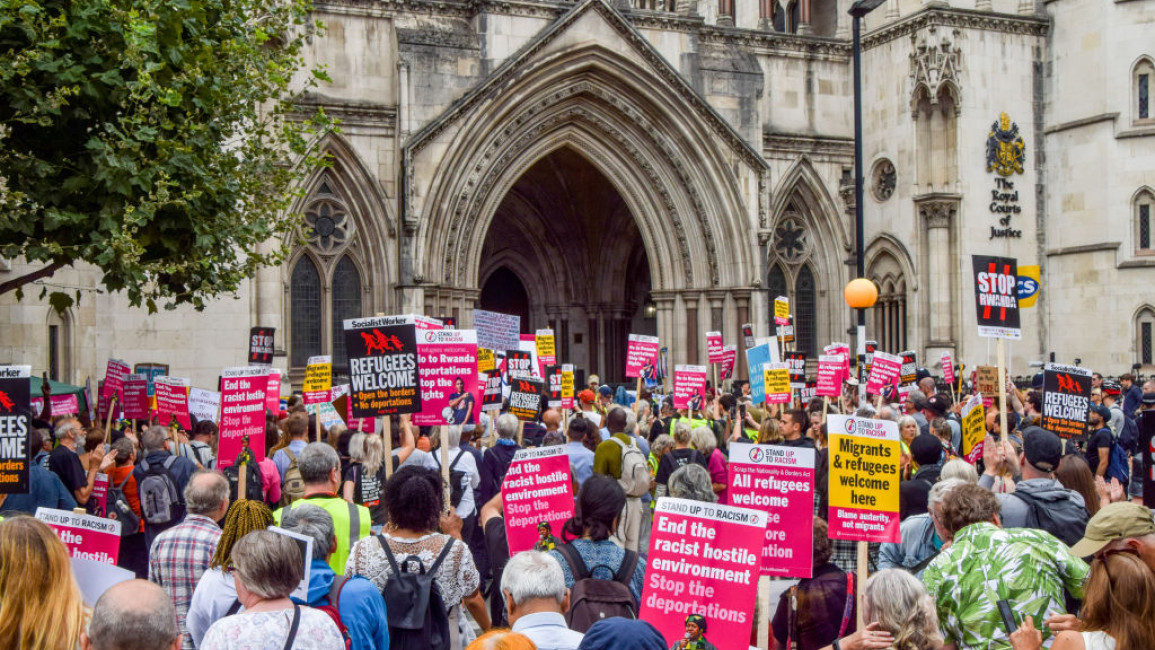UK-Rwanda deportations: Court to rule on British plan to send asylum-seekers to Africa
Judges at Britain’s High Court are set to rule on Monday on whether the UK government’s controversial plan to send asylum-seekers on a one-way trip to Rwanda is legal.
Several asylum-seekers, aid groups and a border officials’ union are trying to stop the Conservative government acting on a deportation agreement with Rwanda that aims to deter migrants from crossing the English Channel in small boats.
More than 44,000 people have arrived in Britain by that route this year, and several have died, including four last week when a boat capsised in freezing weather.
Under the deal, the UK plans to send some migrants who arrive in the UK as stowaways or in boats to the East African country, where their asylum claims would be processed. Applicants granted asylum would stay in Rwanda rather than returning to the UK.
Britain has paid Rwanda 120 million pounds ($146 million) under the deal struck in April, but no one has yet been sent to the country. The UK was forced to cancel the first deportation flight at the last minute in June after the European Court of Human Rights ruled the plan carried “a real risk of irreversible harm.”
The British government is determined to press on with the policy, arguing that it will deter people-trafficking gangs who ferry migrants on hazardous journeys across the Channel’s busy shipping lanes. Refugee charities say that what really needs to be done is to establish safe legal routes for individuals to claim asylum in the UK without having to turn to people smugglers or embark on these dangerous journeys.
Home Secretary Suella Braverman — who has called the Channel crossings an "invasion of our southern coast" — told the Times of London it would be "unforgivable" if the government did not stop the journeys.
"The Brexit vote was in part about migration, control over our borders and repatriating sovereignty on the question of who comes into our country," she said. "This is an egregious example of how we haven’t taken back control."
Human rights groups say it is illegal, unworkable and inhumane to send people thousands of miles to a country they don’t want to live in. They also cite Rwanda’s poor human rights record, including allegations of torture and killings of government opponents.
The UK government has argued that while Rwanda was the site of a genocide that killed more than 800,000 people in 1994, the country has since built a reputation for stability and economic progress. Critics say that stability comes at the cost of political repression.
The UK receives fewer asylum-seekers than many European nations, including Germany, France and Italy, but thousands of migrants from around the world travel to northern France each year in hopes of crossing the Channel. Some want to reach the UK because they have friends or family there, others because they speak English or because it’s perceived to be easy to find work.
The government wants to deport all migrants who arrive by "unauthorised routes", and aims to strike Rwanda-style deals with other countries. Critics point out there are few authorized routes for seeking asylum in the UK, other than those set up for people from Ukraine, Afghanistan and Hong Kong.



